Martin Luther Reformation and Islam

During the Reformation, the advance of the Muslim religion was very much “in the news.” The advancing Turkish Ottoman Empire, which reached its height in the early to the mid-sixteenth century, posed an unnerving political and military threat to European Christendom. Even though the armies of Europe turned back the Turks at the gates of Vienna in 1529, the fact that the forces of Islam had made it that far left Christian Europe “severely rattled” for decades to come.1
Thus, while primarily doing battle with the Roman Catholic Church, the Reformers also gave occasional attention to Islam. In addition to explaining the nature of Islam, the Reformers pondered what lessons God wanted the church to draw from the advance of “the Turks” (synonymous then with “Muslims”) upon an outwardly Christian people.
As we’ve just recognized the five-hundredth anniversary of the Reformation, we find ourselves troubled by these same questions. It seems timely to ask, how did the Reformers view Islam?

THE NATURE OF ISLAM
The Reformers did not consider Islam “one of the world’s great religions” or “one of the three Abrahamic faiths.” Rather, they predominantly thought of Muhammad’s teachings as a heretical deviation from Christianity.
The word heresy comes from the Greek meaning “to pick, to choose,” and as such, a Christian heresy does not receive the Christian faith as a whole but rather selects certain elements at the expense of others. What’s left is something that has been extracted from Christianity but is no longer Christianity. Two of the most well-known heresies in church history are Arianism (a heresy that denies the eternal Trinity) and Pelagianism (a heresy that denies original sin and teaches salvation by works). The church’s struggle against heresy has been perennial.

Arising in the seventh century in a region once influenced by Christianity, Islam purports to retain the original revelation of God given in the Old and New Testaments (though Islam claims that the Bible possessed by Christianity is corrupted). It also retains the confession of monotheism and a belief in the immortality of the soul. It rejects, however, several critical elements of Christianity, chiefly the doctrines of the Trinity and of the incarnation. In other words, it picks and chooses from among Christian beliefs, as heresies do.
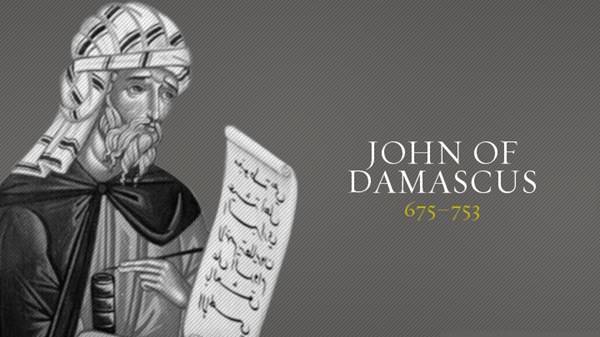
Accordingly, writing less than a century after the founding of Islam, the great Christian theologian (and native of Syria) John of Damascus categorized Islam as one among many heresies. In his book Concerning Heresy, John gave his most extended attention to Islam, writing of Muhammad that
“this man, after having chanced upon the Old and New Testament and likewise, it seems, having conversed with an Arian (heretical) monk, devised his own heresy.”
John then highlights numerous points of concern, including that
(a) the revelation Muhammad claimed to receive was received without witnesses;
(b) Muslims allow men to take more than one wife (up to four); and
(c) they allow men to divorce their wives easily.
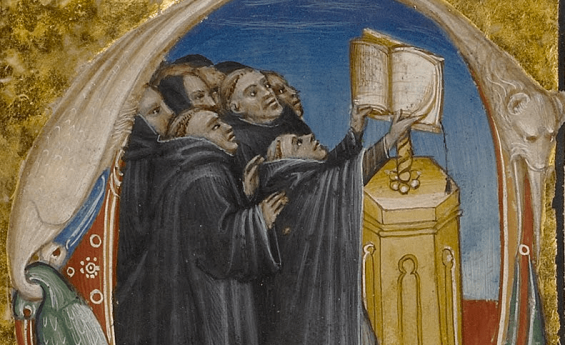
In the twelfth century, Peter the Venerable (1092–1156) devoted himself to studying Islam in its original sources, even commissioning a complete translation of Islam’s sacred writings into elegant Latin. Peter then wrote about Islam and maintained that it was a Christian heresy, one that went so far afield as to approach paganism.2
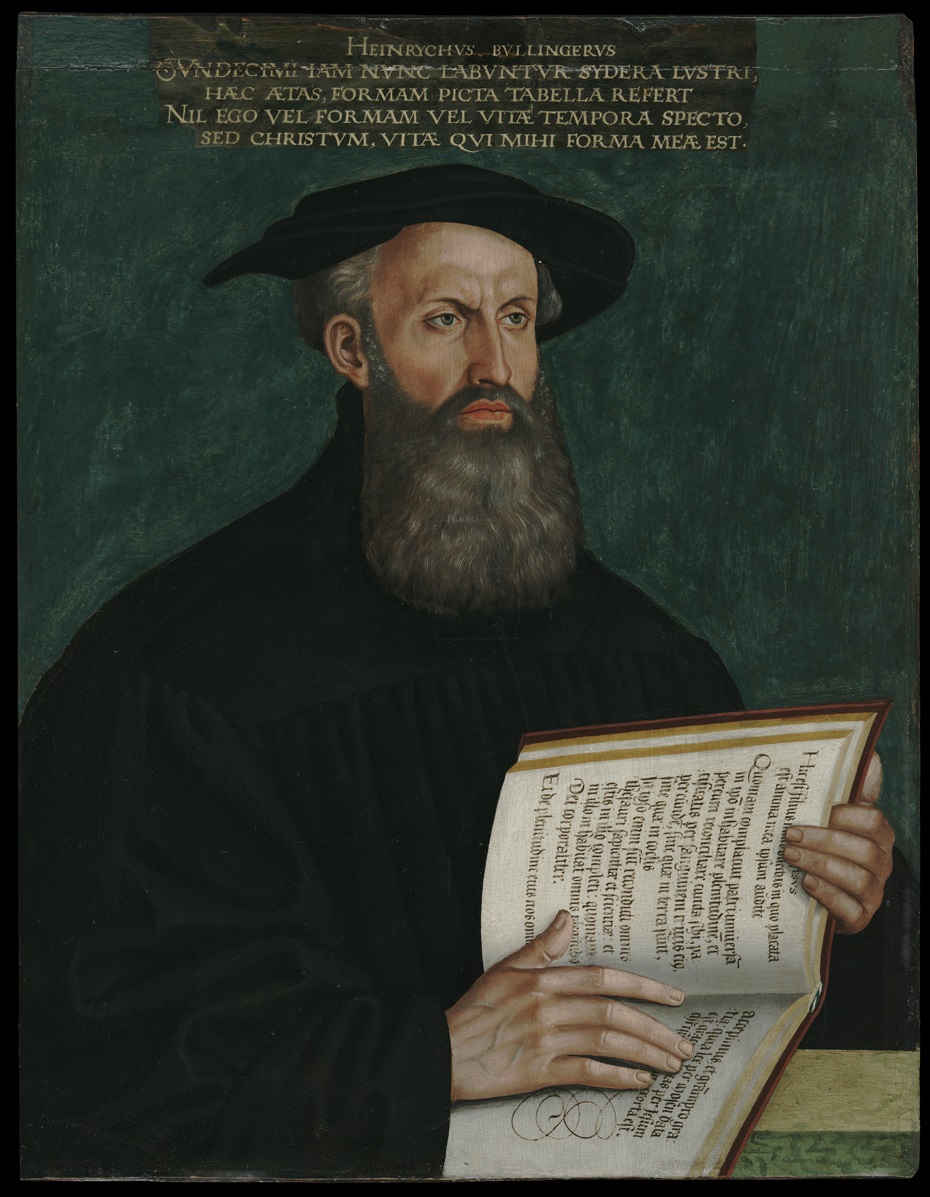
As we come to the Reformers in the sixteenth century, we encounter Heinrich Bullinger (1504–1575), Huldrych Zwingli’s successor in Zurich, who studied and wrote more extensively about Islam than any other Reformer.
Bullinger also viewed Islam as a heresy composed of several heresies—the denial of the Trinity, the denial of Christ’s atoning work as a mediator, and the affirmation that human beings can be saved by works, which he connected to the heresy of Pelagianism.3
Bullinger understood the claim that Muhammad was God’s prophet as fulfilling what Jesus taught in John 5:43: “I have come in my Father’s name, and you do not receive me. If another comes in his own name, you will receive him.”4
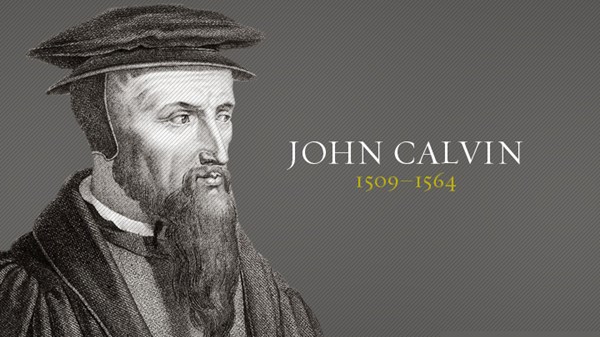
And what of our celebrated forebear John Calvin? In his commentary on 2 Thessalonians, written in 1550, Calvin briefly references “the Turks” when commenting on 2 Thessalonians 2:3. Describing Islam as a “defection” that has “spread more widely,” Calvin understands Muhammad’s work as that of “turn[ing] his followers, the Turks, from Christ.” Consequently, Calvin says that Islam “in its violence tore away about half of the Church.”5
In describing its effects, Calvin also diagnoses the root theological error of Islam. Ever the champion of sola Scriptura, Calvin lays the blame at the feet of their faulty doctrine of Scripture.

For though they ostensibly hold to revelation given in the Old and New Testaments, Muslims recognize additional revelation (in much the same way that Mormons do today), and thus they “keep not themselves fast enclosed within the bounds of Holy Scripture!”6
In summary, the Reformers broadly viewed Islam as a Christian heresy that, having selected some elements of Christianity and rejected others, took root and spread in areas where true Christianity had been eclipsed by substantial degeneration in faith and life. What lessons, then, did the Reformers draw for the church in their day?
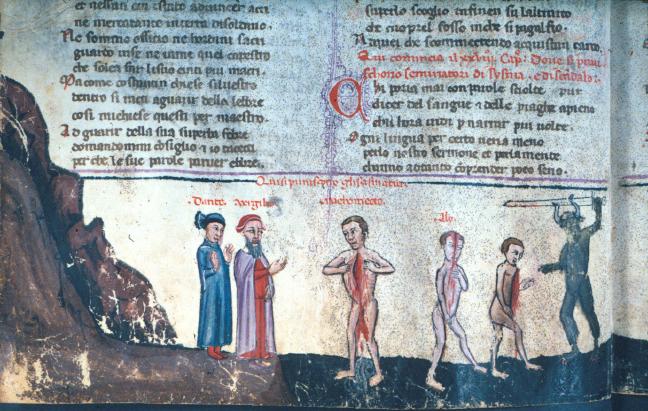
Bullinger observes that Islam historically rises in those places where Christianity has severely degenerated from biblical norms. Accordingly, Bullinger suggests that Islam is actually God’s judgment on the evil lives of whole regions of Christianity—just as, he noted, God used foreign peoples (such as the Philistines, Assyrians, and Babylonians) to chasten His wayward people in the Old Testament.7 Thus, Bullinger prays that the church will see the advance of Islam as requiring two responses: first, the response of repentance for her own sins and failings, and second (and subsequently), the response of missions to the Muslim people.8
Calvin also sees in Islam a warning for Christians everywhere: “And therefore let us mark well, that we must hold [ourselves] to the pure religion.”9
This begins with a steadfast commitment to the Holy Scriptures. In a sermon on Job, Calvin reiterates:
“Devilish curiosity is not contented to be taught simply by the Holy Scripture! Behold also—whereupon the religion of the Turks is founded! Mahomet [Muhammad] has reported himself to be the party that should bring the full revelation—over and besides the Gospel.”10

The Reformers understood the advance of Islam into formerly Christian regions as God’s judgment on the degenerate spiritual state of formerly Christian peoples. Accordingly, they called Christians to hear God’s call to repentance whenever they heard the news of Islam’s threats and successes, and especially to hear God’s call to hold to Scripture and to Scripture alone.
Only out of such repentance and faithfulness to Scripture can the churches then expect God’s blessings on their mission efforts to the Muslim peoples. It is hard to miss the parallels today—five centuries later—as we witness Islam advancing and flourishing precisely in the West where the tenets of the Reformation and of the universal Christian tradition have been corrupted by or rejected in favour of, secular humanism.

DESCRIBING ISLAM TODAY
The perspective of the Reformers did not remain confined to them. Writing in the twentieth century, the Roman Catholic scholar Hilaire Beloc maintained the same basic posture:
“Mohammedanism [Islam] was a heresy: that is the essential point to grasp before going any further. It began as a heresy, not as a new religion. . . . It was a perversion of Christian doctrine. Its vitality and endurance soon gave it the appearance of a new religion, but those who were contemporary with its rise saw it for what it was—not a denial, but an adaptation and a misuse, of a Christian thing.”
And the renowned C.S. Lewis spoke succinctly of Islam in the same way: “Islam is only the greatest of Christian heresies” (God in the Dock).

In political discussions today, it’s been urged that our leaders properly “name and identify the enemy,” which means calling Islamic terrorism what it is. But as Christians, we must also name and identify Islam itself properly.
Calling it “another of the world’s great monotheistic religions” hides the fact that Islam, genetically speaking, assumed the prerogative to pick and choose from among Christian beliefs to establish its own—just as other great heresies that the church has battled throughout her existence have done.
Paul exhorted Timothy to
“charge certain persons not to teach any different doctrine. . . . The aim of our charge is love that issues from a pure heart and a good conscience and a sincere faith. Certain persons, by swerving from these, have wandered away into vain discussion, desiring to be teachers of the law, without understanding either what they are saying or the things about which they make confident assertions” (1 Tim. 1:3–7).
A more apt description of Muhammad one would be hard-pressed to find. Identifying Islam as a heresy enables us to contrast it point by point with Christianity, marking Islam’s specific and several points of departure, and to lay claim to our distinctive doctrines (the Trinity, the incarnation, the sufficiency of Scripture, salvation by grace alone through faith alone) with renewed devotion.
Identifying Islam as heresy also helps us to be confident that the best defense against Islam is the same as that against any heresy—namely, our own commitment to unvarnished and uncompromised Christianity, however unpopular that may be in our time and in our land.
For just as Islam arose in the seventh century in an area of degenerated Christianity, so it spreads today in those parts of the world where people have turned away from an uncompromised, full-orbed Christian faith.
It is in that vein that a former Arab Muslim who became a Christian pastor, Rev. Iskandar Jadeed, once said, “If all Christians were Christians, there would be no more Islam today.”
Or, as Calvin put it four centuries ago, “Let us mark well that we must hold [ourselves] to the pure religion.”
Author: M.Miller
Stuart Bonnington, “Calvin and Islam,” The Reformed Theological Review, vol. 68, no. 2 (August 2009): 77. ↩︎
Emidio Campi, “Early Reformed Attitudes towards Islam,” Theological Review 31 (2010): 134. ↩︎
Ibid., 144. ↩︎
Bullinger, Reply to Seven Charges (1574), Reply 34r-v, quoted in W.P. Stephens, “Understanding Islam – in the light of Bullinger and Wesley,” EQ 81.1 (2009): 24. ↩︎
Calvin, Sermon on Deuteronomy, quoted in Campi, 146. ↩︎
Campi, “Early Reformed Attitudes towards Islam,” 146. ↩︎
Ibid., 145. ↩︎
Ibid., 145. ↩︎
Ibid., 146–47. ↩︎
Ibid., 146–47. ↩︎

